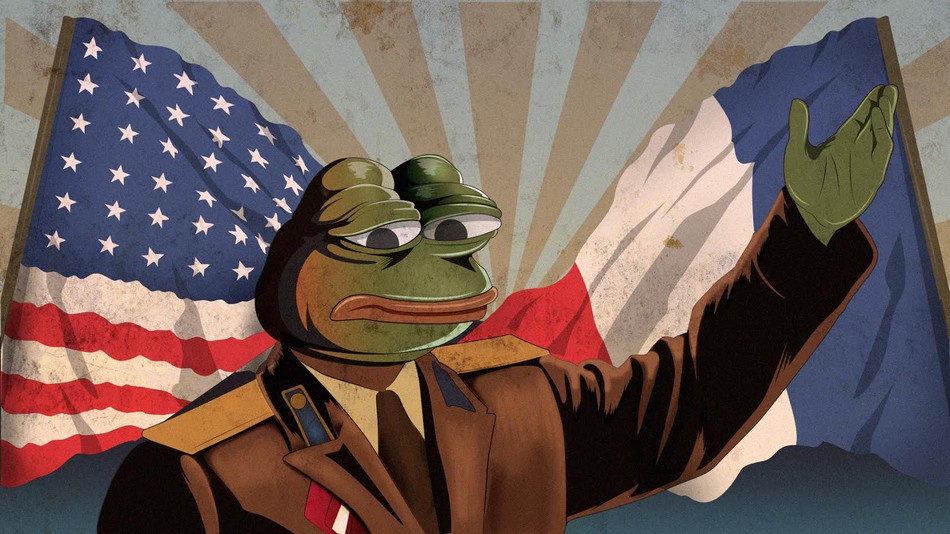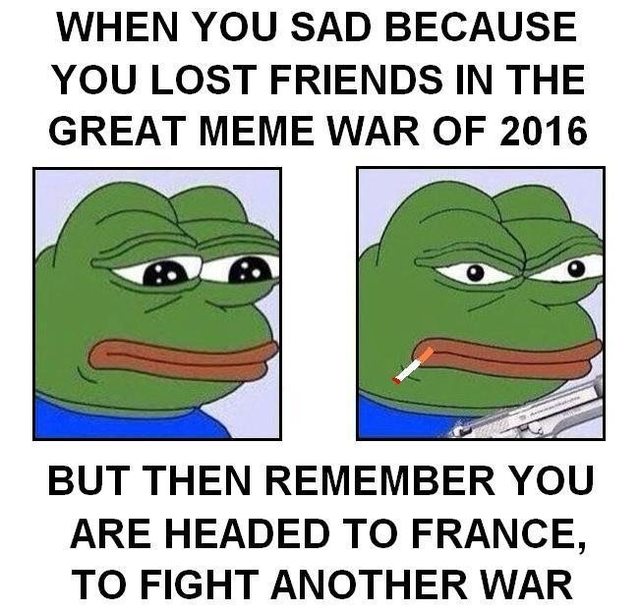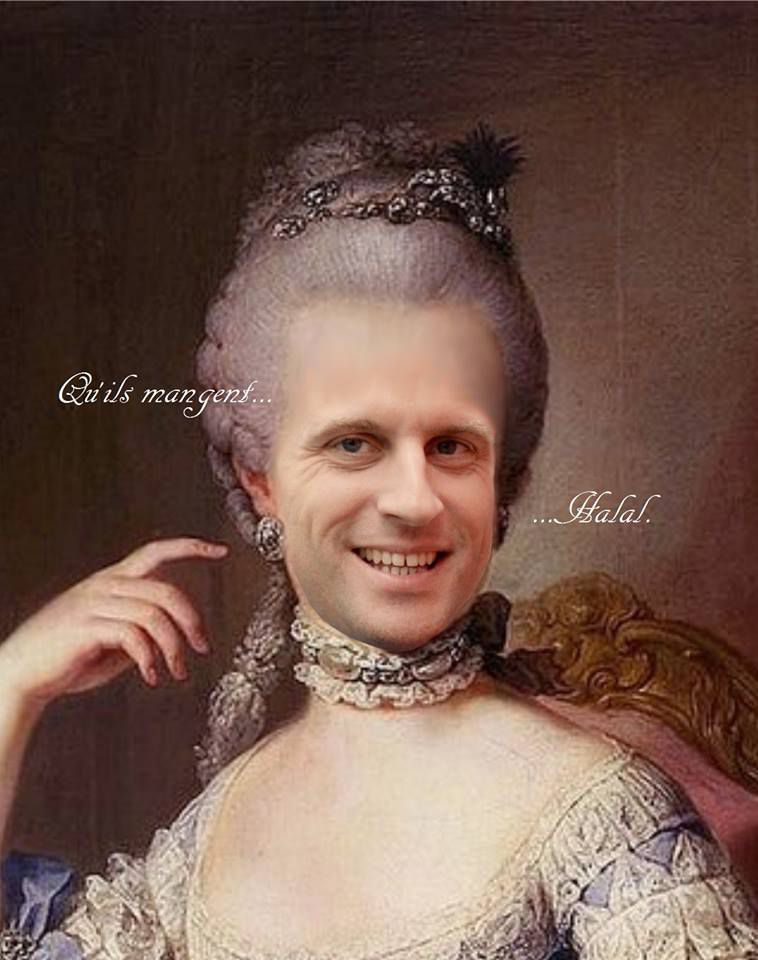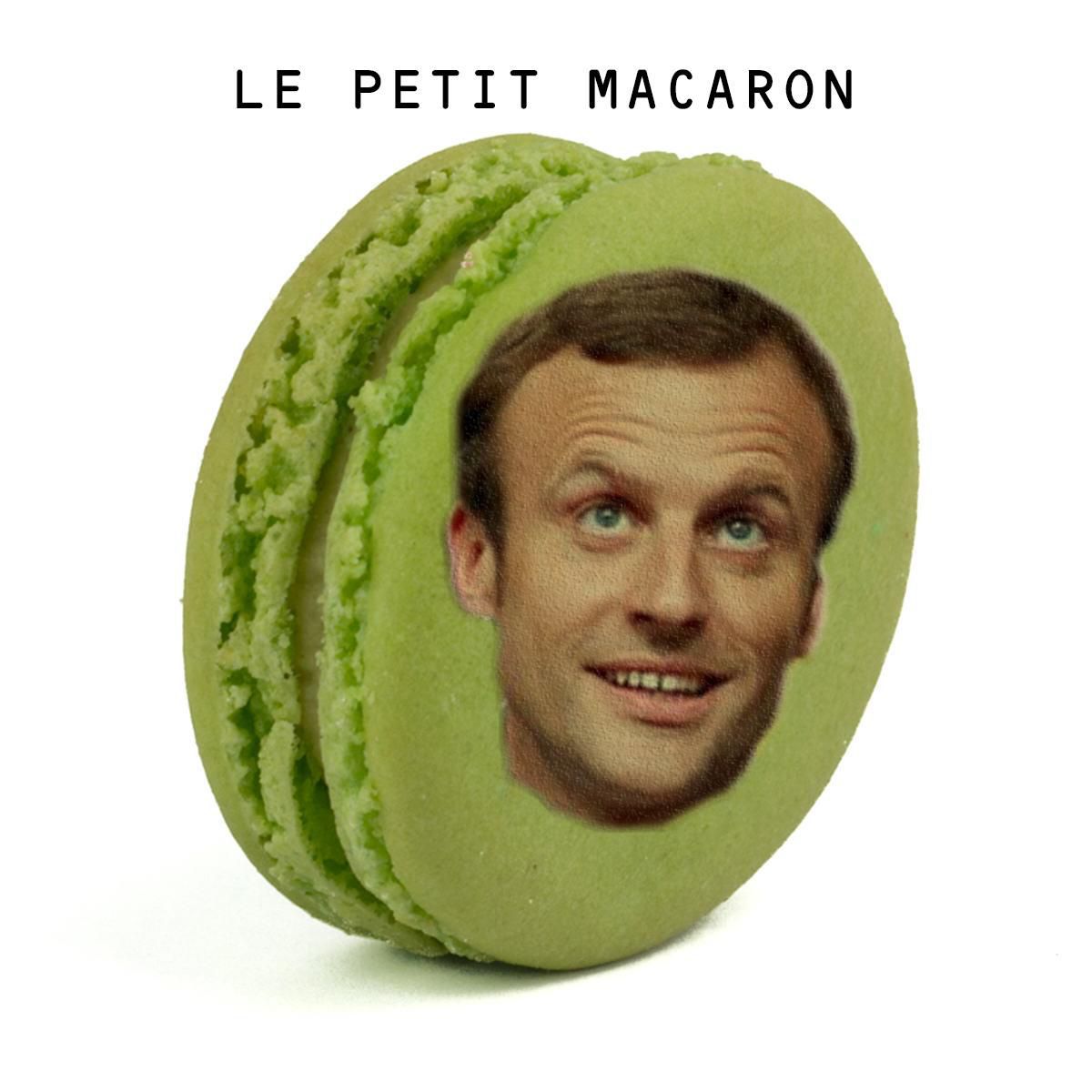
Pepe has made his way to France.
Of the many wildly unpredictable aspects of the 2016 election, the usage of memes by a fiercely active, populist conservative movement stands alone.
Using easily shareable and emotionally driven images to promote nationalist conservative politics, internet meme evangelists believe that they had a direct impact on the election, carrying Donald Trump all the way to the White House.
Six months later, this coordinated movement has taken their Great Meme War overseas to help elect Marine Le Pen, candidate of the far right National Front Party, as the next president of France.
“This is a global movement because people around the world are being forced to accept a globalist agenda that benefits the few at the expense of our nations, our cultures, and our peoples,” the moderators of the subreddit r/The_Donald said about their campaign. “Memes, humor, images, and videos that people come up with … draw people in… Meme magic works if you have the right message/plan.”
Seemingly emboldened by Trump’s electoral win, the weaponization of memes has been codified into something that mirrors the form of a social movement.
That movement has zeroed in the French election.

Allons meme!
France will elect their next president in a run-off election on May 7, when Le Pen — currently the face of extreme populism — will face Emmanuel Macron, a centrist from the En March! party. Thanks to Brexit, an increase in terrorist attacks throughout France, and the election of Donald Trump, the election is now the center of international attention.
In the months leading up to the election, American nationalists have taken their brand of online activism across the Atlantic, working hard to spread their message to the people of France.
Some have even created best practice guidelines for using virality to push Le Pen to a win, while others have more deviously pretended to be French in order to better spread their partisan memes, as reported by BuzzFeed.The American assistance has not been unwelcome. French meme-makers have deftly accepted the baton and are vocal about “Making France Great Again,” even offering tips on how best to fight the Great Meme War on French shores. One post in Reddit’s r/LePen forum explained that though French people might not be super familiar with Pepe, the oddly-shaped cartoon frog that became a standard bearer for the alt-right, the community should readily use memes with him.
“There is no doubt that French people will react positively to dank Pepes, the danker the better,” the post by TortueGeniale666 read. “No need to hold back, use Pepe the way he is the most efficient: destroy Political Correctness.”
Following this advice, the community has not held back and have focused their attacks on what they see as the immigrant threat to France, and on Macron himself. Images invoking terror attacks, memes of Muslims in France (suggesting an overrun country), and emasculating pictures of Macron have been widely spread on Facebook, Twitter, 4chan, and Reddit. As they did during the 2016 U.S. election, users want these memes to be easily shared, replicated, and provoke an emotional response, enough so to hopefully sway voters.

This particular meme factory believes that they are spreading the will of a greater population than just their own; crossing international boundaries to do is a matter of duty in the fight as what they perceive to be dominant, malevolent forces like the mainstream media.
Many right-leaning meme-makers exude confidence, sure that their populism knows no global boundaries — memes, to them, are just an extremely effective tool to harness a movement and center it on a target.
“There exists a massive internet subculture devoted to creating these masterpieces and distributing them,” Reddit user DecoySlug said. “This means that the idea of meme magic is not confined to a specific region but is rather spread over the world. An example is the French who are now using memes to support Le Pen.”
The memes have indeed shown support for Le Pen and trashed her opponents, and the community was rewarded when Le Pen
“At the end of the first round, I thank the Internet activists of the #patriosphere, mobilized since the beginning of this campaign,” her tweet read, referring to the alt-right nationalist movement that supports her.
The message added confidence to the web’s alt-right activists, who feel that they are not only helping to elect Le Pen, but are actively involved with educating the masses in a hope for their future. All this, through memes.
“The goal of weaponizing memes is to get a message across to as many people as possible,” DecoySlug said. “With a well-made meme, a poignant point can be made in a format that allows it to be shared and distributed throughout the internet. In this way, these memes can have an actual and profound effect on people.”
James Cohen, Program Director and Assistant Professor of New Media at Molloy College had a different take on the message that was being spread through the alt-right channels. He believes that the meme-makers ultimately want to disrupt conventional thinking and create more noise so that signals like traditional media and establishment governmental messages are distorted. The alt-right hope their reactionary ideas will grow dominant through their self-created static.
“It’s less about the message being delivered than about the obfuscation of the message,” Cohen said. “The heavier the obfuscation, the less time there will be to do critical thinking. If they can do that, they believe the populism will prevail, because only those with clarity will be able to make the right decision. But the thing is, no one will be clear.”

For many supporters of Trump, Le Pen, and memes, the goal is simple and universal: nationalism.
A Reddit user named Spartharios, who said they lived in Bulgaria, had a basic outlook for what the community should use memes to accomplish.
“Ultimately, the goal of the whole culture of memes and ‘meme magic’ is to spread our political message, which is nationalism and a right to self-determination of all peoples,” Spartharios said simply.
However, Florian Cramer, lecturer in 21st century visual culture at…
The post The alt-right’s worldwide weaponization of memes appeared first on FeedBox.